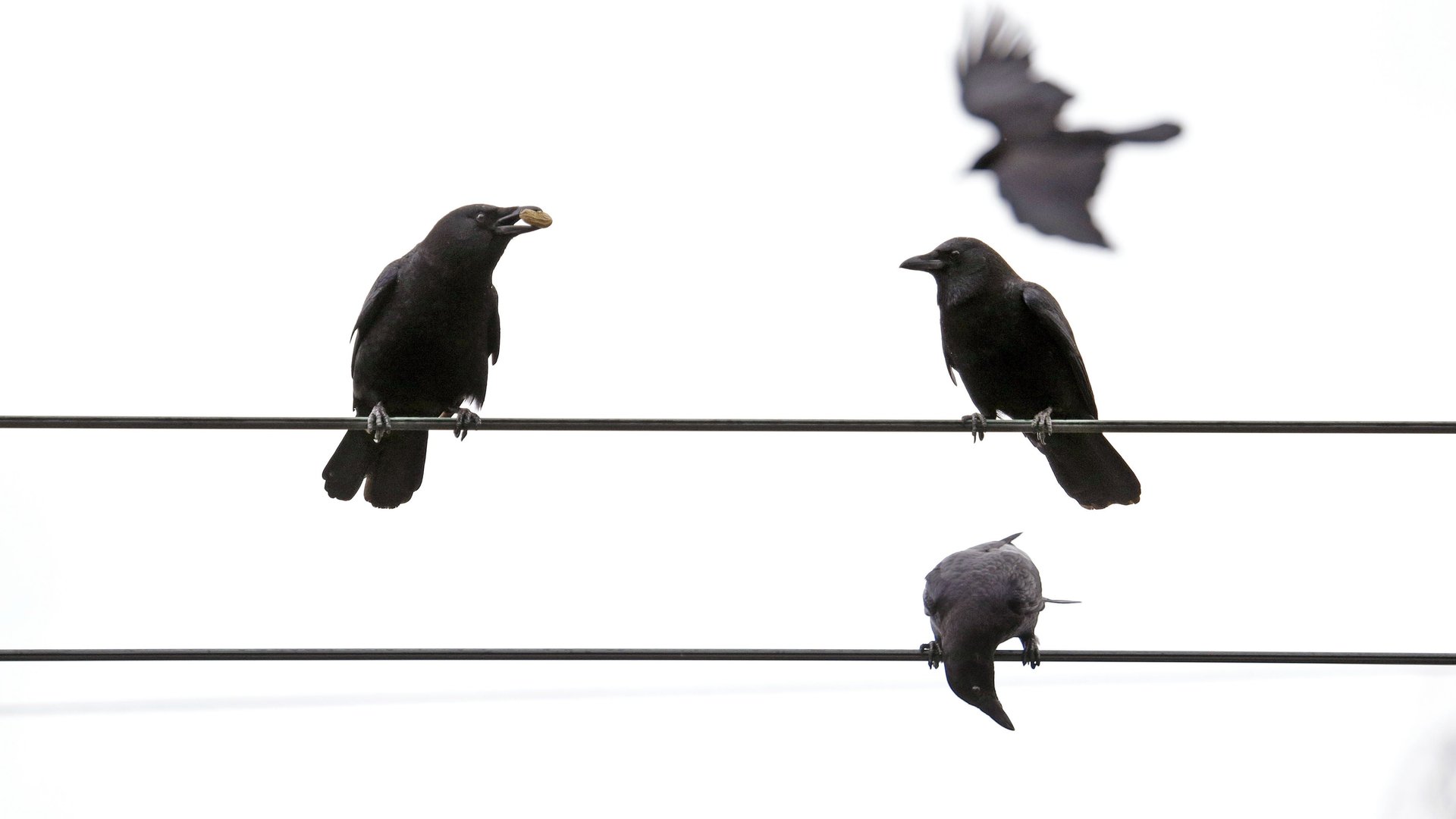When a crow dies, other crows investigate
Crows may be the homicide detectives of the avian world.


Crows may be the homicide detectives of the avian world.
Despite birds’ reputation for being, well, bird-brained, crows and other members of the corvid family—which includes ravens and magpies—are actually quite intelligent. They’ve shown an ability to understand basic cause-and-effect relationships, use tools to gather food, and recognize (paywall) individual faces. Now, research suggests crows may even go sleuthing when one of their kind dies, part of a biological inclination to identify future threats.
When faced with a person holding a dead crow, other crows will send out a warning call, called “scolding,” according to a study from the University of Washington in Seattle, published (paywall) in the journal Animal Behavior last year. To conduct the experiment, researchers—led by graduate student Kaeli Swift—placed snacks on the ground to attract crows. Once the snack spot became popular, they carried a dead crow (stuffed) out near the food. (All volunteers wore a latex mask to blend their own identities.) To draw comparisons, researchers also stood next to the feeding area with a taxidermied red-tailed hawk (an animal that preys on crows), a stuffed pigeon, or with nothing.
When researchers stood near the food with dead crows or hawks, nearby crows would “scold” loudly in front of their fellow crows; sometimes they would even attack the masked volunteer. Even when researchers returned multiple times afterwards with no dead birds in hand, the crows would still re-up their warning cry, suggesting they retained knowledge of potential threats.
By contrast, the crows did not react to the sight of a taxidermied pigeon—possibly because they scavenge dead pigeons.
When researchers conducted the same experiment with only pigeons (a live pigeon seeing a volunteer holding a dead pigeon), the pigeons didn’t react, suggesting crows may be unique in their willingness to alert other members of their species to threats.
However bizarre, a crow’s ability to remember people they associate with death is crucial to how they interact with humans. “[As a crow], some people will kill you, other people will feed you,” John Marzluff, a biologist at the University of Washington and co-author of the paper, told National Geographic. Crows’ survival depends on differentiating friend from foe.